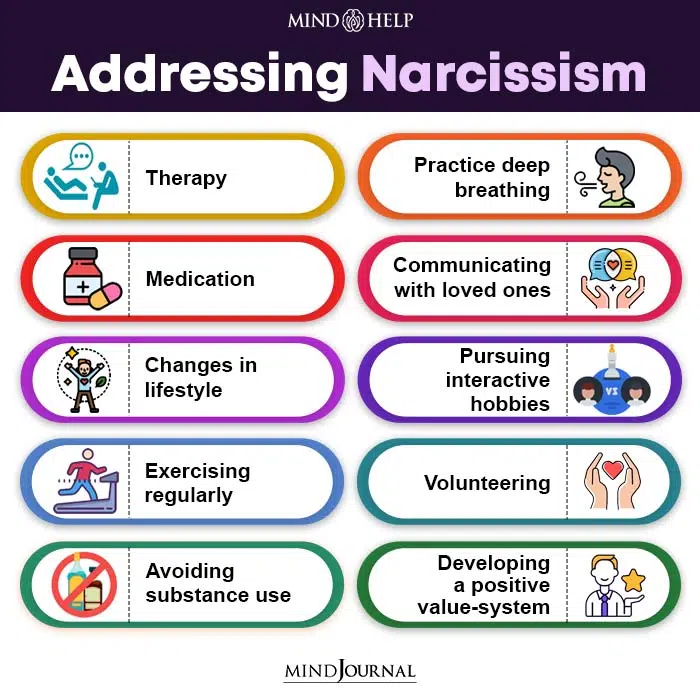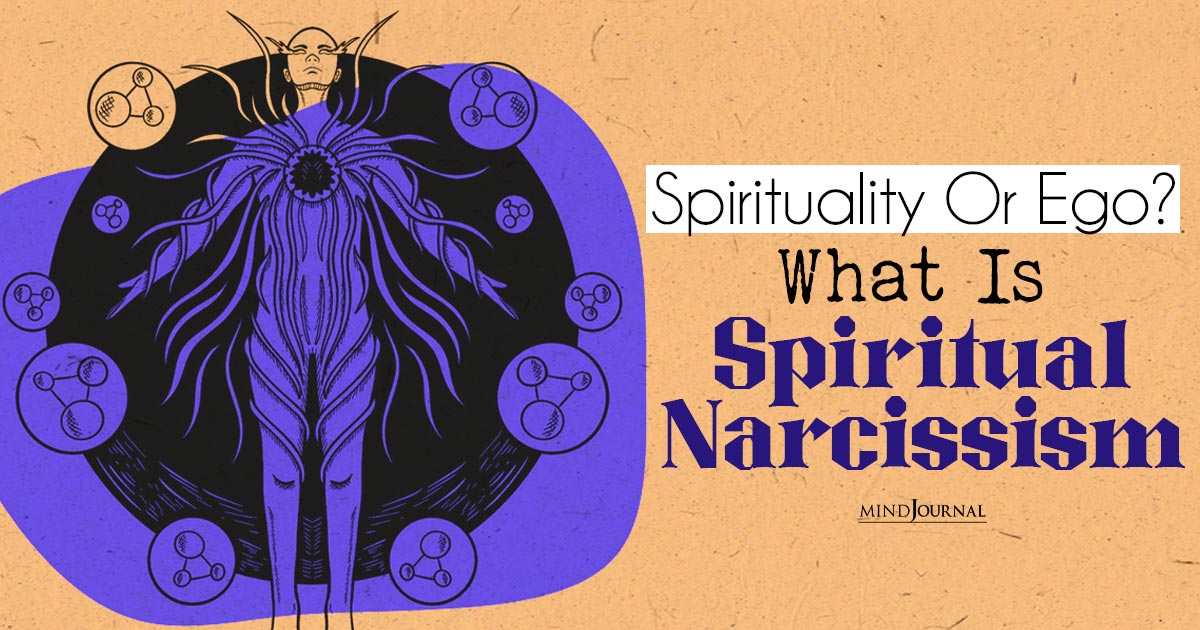Is there a cure for narcissism? Narcissists have an unshakeable sense of entitlement, an insatiable need for admiration, and a lack of empathy for others. Such traits are characteristic of individuals with narcissistic personality disorder (NPD).
Narcissists are often toxic and can turn any relationship unhealthy and abusive. The prevalence of narcissism in today’s society has sparked curiosity about whether there is a cure for this complex personality disorder.
So let us delve into the depths of narcissism and find the answer to – Is there a cure for narcissistic personality disorder?
Understanding Narcissism
Narcissism, named after the mythical figure Narcissus who fell in love with his own reflection, is a psychological condition characterized by –
- An excessive sense of self-importance
- A constant need for validation
- A lack of empathy for others
Individuals with NPD often exhibit grandiosity, a sense of entitlement, and a tendency to exploit others for personal gain.
Related: Are You A Source Of Narcissistic Supply?
The Roots of Narcissism
Narcissism can arise from a combination of genetic predisposition and environmental factors. Some studies suggest that certain genetic variations may contribute to the development of narcissistic traits.
Additionally, the upbringing of an individual, particularly early childhood experiences, can shape their personality and contribute to the emergence of narcissistic tendencies.
The Challenge of Change
Recognizing and acknowledging one’s narcissistic traits is a crucial step towards change. However, individuals with NPD often struggle with self-reflection due to their deep-seated defense mechanisms and fragile self-esteem.
Overcoming these barriers requires a genuine desire for personal growth and a willingness to explore the underlying insecurities that fuel narcissistic behavior.
Is There a Cure for Narcissism?
Narcissistic Personality Disorder (NPD) is a complex and challenging mental health condition characterized by a persistent pattern of grandiosity, a need for admiration, and a lack of empathy.
But Is there a cure for narcissistic personality disorder?
While there is no known cure for narcissism, treatment options, such as psychotherapy (like cognitive-behavioral therapy), aim to manage symptoms, and enhance self-awareness.
Psychotherapy, particularly approaches like cognitive-behavioral therapy (CBT) and psychodynamic therapy, can be helpful in managing narcissistic traits and reducing associated distress.
Therapy can focus on increasing self-awareness, developing healthier coping mechanisms, improving interpersonal relationships, and fostering empathy.

Individuals with narcissistic traits can learn healthier behaviors, but significant personality changes can be challenging. Therapy may help manage, not completely cure, narcissism.
So is there a cure for narcissism? The truth is, narcissistic traits and behaviors can be deeply ingrained and resistant to change. However, it’s important to note that not all individuals with narcissistic traits have NPD, and some people with NPD may seek treatment for related issues, such as depression or anxiety.
It’s worth mentioning that individuals with NPD often face significant challenges in recognizing and acknowledging their own problematic behaviors, which can hinder their willingness to seek help or engage in therapy.
In some cases, individuals with NPD may only seek treatment if they experience significant distress or if they are motivated by external factors, such as relationship difficulties or legal consequences.
It’s essential to consult with a qualified mental health professional for a comprehensive evaluation and personalized recommendations if you or someone you know is struggling with narcissistic traits or NPD.
A medical professional can provide appropriate guidance and support based on the latest research and best practices in the field.
Related: How To Prevent Raising A Narcissist?
6 Ways to Cure Narcissism
Still wondering “Is there a cure for narcissism?” Here are a few effective ways that can help a person with NPD to better manage their narcissistic symptoms, traits and behaviors –
1. Therapy
Therapy, particularly psychotherapy, holds promise as a valuable tool in addressing and managing narcissism. Therapeutic approaches such as cognitive-behavioral therapy (CBT) and psychodynamic therapy can help individuals with NPD gain insight into their patterns of thinking and behavior.
These modalities encourage self-reflection, empathy development, and the cultivation of healthier coping mechanisms.
2. Empathy
Empathy, often lacking in individuals with NPD, plays a pivotal role in fostering genuine connections with others. Through therapy and personal introspection, narcissistic individuals can develop a deeper understanding of the emotions and experiences of those around them.
Cultivating empathy allows them to break free from the self-centeredness that characterizes narcissism.
3. Mindfulness and Self-Awareness
Practicing mindfulness and cultivating self-awareness are powerful strategies for individuals with NPD to break free from their self-centered tendencies.
Mindfulness helps individuals become attuned to their thoughts, emotions, and behaviors, enabling them to challenge and modify unhealthy patterns.
Self-awareness allows them to recognize the impact of their actions on others and make conscious choices to foster healthier relationships.
4. Building Healthy Relationships
Narcissism often leads to difficulties in establishing and maintaining healthy relationships. Learning to establish and respect boundaries is crucial for individuals with NPD.
Setting boundaries helps them understand the needs and limits of others, fostering healthier and more balanced interactions.
5. Patience and Persistence
Recovering from narcissism is a gradual and lifelong journey. It requires patience, persistence, and a commitment to personal growth. Breaking free from deep-rooted patterns of behavior takes time and effort. However, with dedication and the right support system, change is possible.
6. Embracing Vulnerability
Embracing vulnerability is a transformative step in the path to healing narcissism. Allowing oneself to be open, authentic, and emotionally available fosters genuine connections and lays the foundation for personal growth.
It requires individuals with NPD to confront their fears and insecurities and develop trust in themselves and others.
Takeaway
So is there a cure for narcissism? While there is no definitive “cure” for narcissism, there is hope for growth and change. Through self-reflection, therapy, empathy cultivation, mindfulness, and the development of healthy relationships, individuals with narcissistic traits can embark on a transformative journey towards a more balanced and fulfilling life.
It is a path that demands patience, persistence, and a sincere desire for personal growth. So, if you or someone you know is grappling with narcissism, remember that change is possible, and the journey towards self-discovery and healing begins with a single step.
Related: 6 Tricks To Spot A Narcissist On Social Media
Frequently Asked Questions (FAQs):
Can narcissism go away?
Narcissism can be managed and mitigated through therapy and personal growth, but it may not completely “go away” as it’s a personality trait.
Can a narcissist ever change?
Yes, with dedicated therapy and personal commitment, narcissists can undergo meaningful change and develop healthier behaviors and perspectives over time.
Can a narcissist be a good person?
A narcissist can display good qualities and behaviors, but their self-centered tendencies may impact their overall character and relationships.









Leave a Reply
You must be logged in to post a comment.